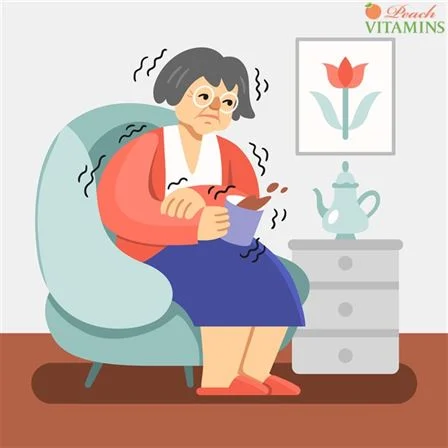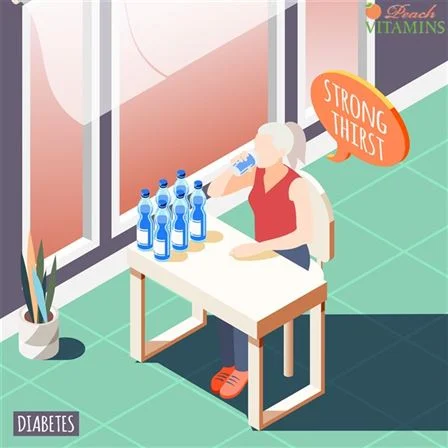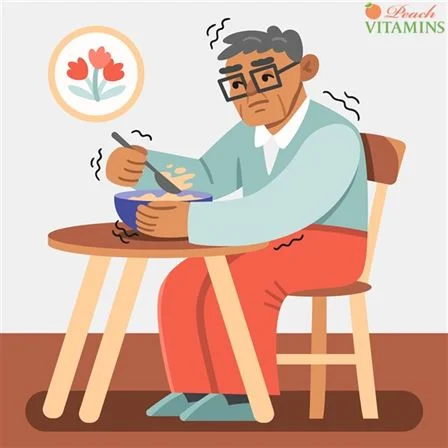Why Is a Plant-Based Diet Important?
Diabetes has become a global epidemic. One in every eleven Americans has diabetes, which is expected to rise as obesity rates continue to climb.
Plant-based diets are becoming increasingly popular because they are naturally low in calories and high in fiber. They also contain many antioxidants and phytonutrients that boost health and fight disease.
If you suffer from insulin resistance, plant-based diets may be just what you need to reverse the damage caused by years of poor diet choices. Here’s why you should consider switching to a plant-based diet.

How Insulin Sensitivity Can Help Lose Weight and Keep It off Permanently
Insulin sensitivity is the ability of cells to respond to insulin. The body has two kinds of cells – fat cells and muscle cells, fat cells store energy (fat), and muscle cells burn energy (calories).
When we eat food, our bodies break down carbohydrates and proteins into glucose and amino acids. Glucose enters the bloodstream and travels through the blood vessels to the liver. There, the liver breaks down the glucose into glycogen which stores the extra energy. Glycogen is stored in the muscles and liver until needed.
The pancreas produces insulin and helps control the amount of glucose entering the bloodstream. Insulin works by attaching itself to receptors on cell membranes. Once connected, insulin causes the cell membrane to open, allowing glucose molecules to enter the cell.
This lack of response to insulin results in elevated blood sugar levels. High blood sugar levels cause the body to release excess amounts of insulin, and excess insulin increases the risk of developing diabetes.
Benefits of Plant Protein
One of the most effective ways to reduce insulin resistance is to eat plant protein instead of animal protein. The reason is simple – plants contain fiber, vitamins, minerals, antioxidants, and phytonutrients that help lower cholesterol, improve digestion, boost energy, and protect against chronic diseases.
Animal proteins include beef, pork, chicken, fish, eggs, milk, cheese, yogurt, butter, and ice cream. They’re also found in processed foods like meat substitutes, breakfast cereals, snack bars, and canned meats.
Plants include beans, lentils, peas, nuts, seeds, tofu, tempeh, soybeans, whole grains, vegetables, fruits, herbs, spices, teas, and juices. They’re also found at the center of popular diets, including veganism, paleo, gluten-free, and ketogenic diets.
Eating plant protein is one of the easiest ways to achieve these goals if you’re looking to lose weight, eat healthier, prevent chronic diseases, and live longer.

How to Increase Your Body Mass While Losing Weight
If you’re trying to lose weight, you may be tempted to cut calories drastically. But cutting calories too quickly can cause you to gain back the weight you lost.
Instead, try eating fewer calories than you burn daily, which will help you maintain your current weight while losing weight.
To show how to increase your body mass while losing weight, consider these tips:
- Eat breakfast every morning. Breakfast helps keep blood sugar stable throughout the day.
- Drink plenty of water. Water keeps you hydrated and helps prevent hunger pangs.
- Avoid sugary drinks. Sugary beverages raise insulin levels, which causes fat storage.
- Don’t skip meals. Skipping meals makes you feel hungrier and leads to overeating later.
- Exercise regularly. Regular exercise boosts metabolism and burns extra calories.
A Clear Explanation of the Dangers of Obesity
Obesity is one of the most dangerous health problems facing our society today, and it causes diabetes, heart disease, stroke, cancer, arthritis, depression, anxiety, and many other conditions.
But obesity isn’t just bad for your body; it’s terrible for your brain too. Insulin-resistant people are more likely to develop Alzheimer’s disease, dementia, and Parkinson’s disease.
The good news is that there are several things you can do to reverse or slow down the progression of obesity.
This is why it’s essential to understand the dangers of obesity before embarking on a plant-based diet.
Weight Loss – The Specific Steps to Lose Weight While Keeping It off Permanently
To achieve permanent weight loss, you must reduce your calorie intake and increase your physical activity, which means eating fewer carbs and increasing your protein consumption.
Carbohydrates are found in bread, pasta, rice, potatoes, corn, beans, fruit, vegetables, milk, yogurt, and cereal. They are digested quickly and cause blood sugar spikes. These spikes lead to cravings for sweets and starches.
Proteins are found in meat, fish, eggs, dairy, nuts, seeds, soybeans, and poultry. Proteins take longer to digest than carbs, which makes them slower to spike blood sugar.
When you combine carbs and proteins, you end up with a slow release of energy that keeps you feeling full for hours after you’ve eaten. This helps you avoid overeating and maintain a
There are many ways to reduce carbs and increase your protein consumption. Here are some tips:
- Eat whole grains instead of refined grains. Whole grains contain fiber, vitamins, minerals, and antioxidants that help lower cholesterol and prevent heart disease.
- Add nuts and seeds to meals. Nuts and seeds add protein and healthy fats to your diet. Try almonds, cashews, peanuts, sunflower seeds, pumpkin seeds, flaxseeds, chia seeds, hemp seeds, sesame seeds, and walnuts.
- Use olive oil instead of butter. Butter has saturated fat, which raises bad cholesterol and increases the risk of heart disease. Olive oil has monounsaturated fats, lowering bad cholesterol and reducing heart disease risk.
- Keep track of your progress. Write down everything you eat and drink. Then compare your daily totals to those of previous days. This will give you insight into whether you’re consuming too many carbs or not enough protein.

How Blood Sugar Levels Affect Our Lives and How to Fix Them
Blood sugar levels affect our lives and cause health problems. We need blood sugar levels to function correctly. But too many people suffer from insulin resistance, which causes blood sugar levels to rise too high. This leads to diabetes, heart disease, obesity, and other health problems.
To fix these issues, we must understand how blood sugar levels work. Then we can learn how to control them through diet and lifestyle choices.
We’re going to talk about two things:
- What happens when blood sugar levels go too high.
- The role of insulin in regulating blood sugar levels.
What Happens When Blood Sugar Levels Go Too High
When blood sugar levels go too low, we feel tired and weak. When blood sugar levels go too far up, we experience symptoms like dizziness, headache, nausea, and blurred vision. These symptoms are called hypoglycemia.
Hypoglycemia occurs when blood sugar levels drop below normal. Hypoglycemia is dangerous because it can cause seizures, coma, and death.
How does a blood sugar level become too high? There are three main reasons:
- Overeating food (especially carbohydrates).
- Having too little insulin.
Overeating Food
If you overeat food, your body has trouble processing it, and your pancreas produces extra insulin to help process the food. However, if you fill food in one sitting, your body doesn’t have enough insulin to handle the load.
This results in blood sugar levels rising above average.
Not Eating Enough Food
If you skip meals, your body doesn’t receive any fuel to burn. Without power, your body stops producing energy. So instead of burning fat, your body starts storing it.
Your body stores fat to survive. But when you store fat, you gain weight. And when you gain weight, your blood sugar levels rise.
Cardiovascular Diseases – How Heart Disease Affects the Human Body
Heart disease affects every organ in our body. The heart pumps blood throughout the body, delivering oxygen and nutrients to cells. Blood vessels carry blood away from the heart, carrying waste products back to the lungs, where they’re expelled.
When we eat too many calories, fat accumulates in the liver, and this causes fatty liver disease, leading to inflammation and liver scarring. Over time, these scars may lead to cirrhosis, cancer, and death.
Fatty liver disease is one of the most common chronic conditions affecting Americans today. According to the Centers for Disease Control (CDC), nearly 30% of American adults have some degree of fatty liver disease.
If you have insulin resistance, you’re at risk for developing cardiovascular disease. Your pancreas produces insulin to help regulate glucose metabolism, but your body doesn’t respond well to insulin if you have insulin resistance.
To reduce your risk of developing cardiovascular disease, you need to control your weight, exercise regularly, and limit alcohol consumption. But there’s another critical factor: diet.
A plant-based diet rich in fruits, vegetables, whole grains, nuts, seeds, beans, and soy helps prevent cardiovascular disease. Eating foods high in fiber lowers cholesterol and reduces the risk of heart disease.
Eating healthy fats, including omega-3 fatty acids found in fish oil, decreases triglycerides and improves HDL (“good”) cholesterol. Omega-3 fatty acids also lower blood pressure and improve circulation.
Finally, eating plenty of fresh produce keeps you hydrated and prevents constipation.

How to Improve Hypertension Naturally
There are many ways to improve hypertension naturally. One of them is to eat foods rich in potassium. Potassium helps lower blood pressure by relaxing muscles in the walls of blood vessels. Foods rich in potassium include bananas, avocados, tomatoes, spinach, potatoes, beans, peas, nuts, seeds, and whole grains.
Another way to improve hypertension naturally is to exercise regularly. Exercise lowers blood pressure by increasing circulation and reducing stress hormones. The American Heart Association recommends 30 minutes of moderate activity five times per week.
The Link Between Cholesterol Levels and Heart Disease
Cholesterol is a significant risk factor for heart disease. High blood cholesterol levels are associated with atherosclerosis, plaque buildup inside arteries.
Plaque buildup narrows the artery walls and reduces blood flow through them. This leads to clogged arteries, which can cause chest pain, shortness of breath, irregular heartbeat, stroke, and heart attack.
Many studies show that following a plant-based diet lowers cholesterol levels. According to the AHA, there is strong evidence that a plant-based diet helps reduce the risk of coronary heart disease.
One study found that vegetarians had significantly lower total cholesterol than nonvegetarians. Another study showed that vegans had substantially lower LDL cholesterol than nonvegetarian controls.
Veganism has been shown to improve health outcomes in several areas. Studies show that vegans have better bone density and reduced rates of diabetes, cancer, obesity, and hypertension. They also tend to live longer than nonvegetarians and omnivores.
Why Energy Intake Is So Important
Energy intake is one of the most critical factors in maintaining health and wellness. The amount of calories we consume daily directly affects our body weight, metabolism, blood pressure, cholesterol level, immune system, and many other aspects of our overall well-being.
Eating too little or too much can cause problems with our hormones, digestive tract, brain function, and many other body parts. We need to eat enough food to maintain a healthy weight and avoid becoming overweight or obese.
Eat Well to Avoid Fatigue, Irritability, Headaches, and Other Signs of Poor Nutrition
We also need to eat enough food every day to keep our energy levels stable throughout the day. Eating too little or too much energy can lead to fatigue, irritability, depression, headaches, and other symptoms.
There are several ways to measure energy intake. One method involves counting the total calories consumed over 24 hours. Another technique is tracking your caloric consumption during specific periods of the day.
Regardless of which method you use, try to track your energy intake for two weeks. After that, compare your results to your baseline measurements. You may need to change your diet if you notice significant differences between your baseline and recent data.
Conclusion
A plant-based diet for insulin resistance is an effective way to lose weight, control blood sugar, and prevent cardiovascular disease. It’s easy to follow and requires no special equipment.
A low-fat vegan diet is especially beneficial because it contains fewer saturated fats and trans fats than animal products do. These fats increase the risk of cardiovascular disease.
Plant-based foods contain fiber, vitamins, minerals, antioxidants, phytochemicals, and other nutrients that help fight inflammation, boost immunity, and promote good digestion.
To learn more about creating a healthy vegan diet plan, check out Ayurvedic practitioner Cosmic Mike for regulating glycemic control.
